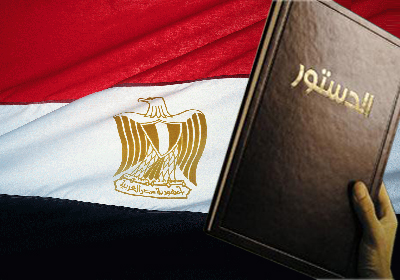 After four days of discussions, the mediation committee that was formed to end the impasse over the Constituent Assembly's current makeup agreed that the assembly should be formed from outside Parliament.
After four days of discussions, the mediation committee that was formed to end the impasse over the Constituent Assembly's current makeup agreed that the assembly should be formed from outside Parliament.
Committee member Wahid Abdel Meguid said 40 percent of the assembly would come from political parties, 15 percent from the judiciary and law professors, 10 percent youth, another 10 percent women, nine percent from professional syndicates, four percent from Al-Azhar, four percent from the Coptic Church, two percent from trade unions, a member of the armed forces, and a member of the police.
Abdel Meguid also said that political party representatives attended the meetings, most notably the Freedom and Justice Party, the Nour Party, the Egyptian Democratic Party and the Free Egyptians Party.
Tarek al-Sahry of the Nour Party said the liberals in the meetings objected to the presence of Islamists in the Constituent Assembly. “There are attempts to ban the Islamists from drafting the constitution,” he said, adding that the party ought to put down red lines when it comes to writing the constitution, namely that the Islamic Sharia is the main source of legislation, a mixed political system and separation of powers.
Yasser Borhamy of the same party said the party does not mind selecting the assembly members from outside Parliament, provided that all political parties are proportionately represented in it.
“The people chose the Islamists for Parliament,” he said. “Therefore, they should form 70 percent of the assembly.”
Adel Afify of the Asala Party called on the military council to announce the criteria for the formation of the assembly in a Constitutional Declaration to protect it from challenges and end the crisis over it.
Ahmed Abdel Rahman of the Freedom and Justice Party said the party is keen on a consensus among all political forces over the assembly so that it truly represents all segments of society. However, he rejected the idea of another Constitutional Declaration.



